Why Switzerland should be doing more to fight racism
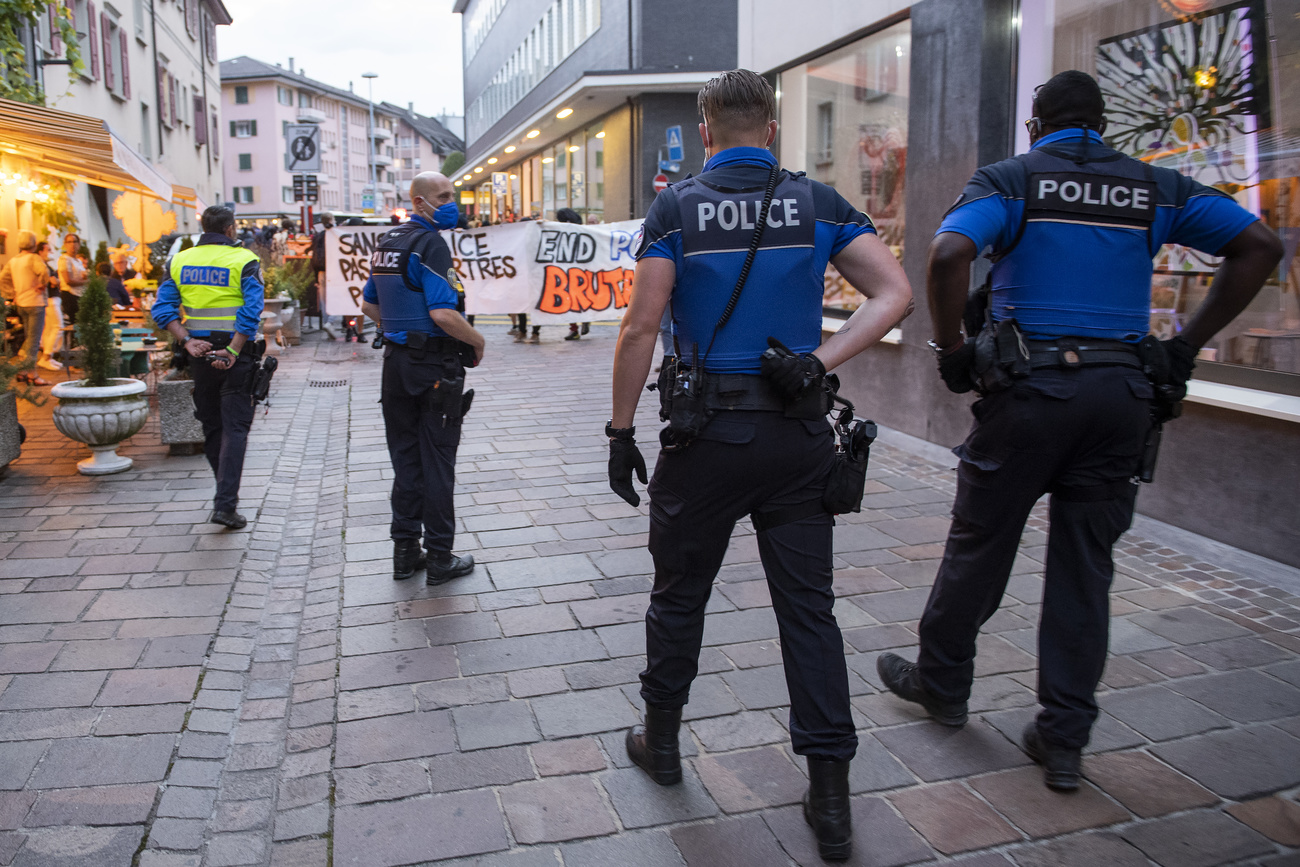
In its latest review, the United Nations points its finger at the lack of clear Swiss legislation to tackle racism as well as the lack of enough accessible recourse for victims. Legal costs are prohibitive, say activists.
The United Nations Committee on the Elimination of Racial Discrimination (CERD) in December urged Switzerland to beef up its legislation, saying there was no clear federal law banning racial discrimination. It also called for Bern to take more action against rising hate speech online and “continued racial profiling by the police”.
CERD is responsible for monitoring implementation of the 1965 International Convention on the Elimination of All Forms of Racial DiscriminationExternal link, to which Switzerland acceded in 1994. Reviews normally occur every four years. Switzerland’s last review was in 2014. This one was delayed mainly because of the Covid-19 pandemic.
Diaby Bakari Sidiki, a jurist from Côte d’Ivoire who was on the 18-member CERD panel issuing recommendations to BernExternal link, noted some “encouraging” progress since 2014, including Switzerland’s ratification of various international conventions, such as on domestic workers and the rights of the handicapped. But the experts also urged action on major points of concern.
Under the review process, the Swiss government submits a report on its work to tackle racism, but the committee also reviews evidence from NGOs and civil society organisations.
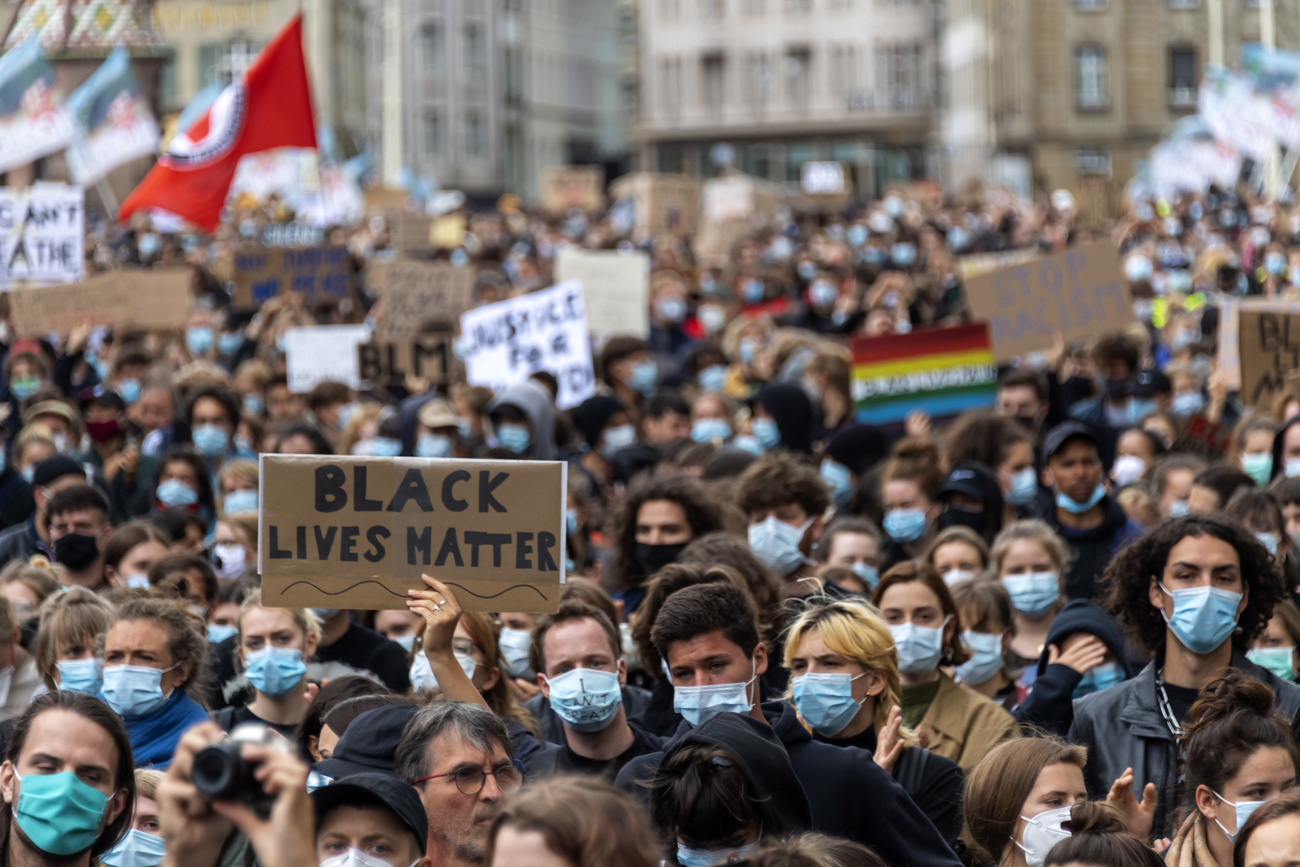
More
UN body concerned at rise of racist hate speech in Switzerland
Racial profiling
“We move like ordinary people on the street and they just come to us and ask for our identity card. The reason is our skin colour. There is no other reason,” says one person who spoke to the Alliance against Racial ProfilingExternal link.
Mohamed Wa Baile, a Swiss citizen of Kenyan origin who co-founded this NGO, says many people in Switzerland are targeted by “racist policing” but cannot take their cases to court for financial reasons. He is one of the few who did. His caseExternal link, dating back to a police check at Zurich station in 2015, has now gone all the way to the European Court of Human Rights. He was only able to do this because of fundraising.
“You need to be rich to seek justice in Swiss courts,” Wa Baile told SWI swissinfo.ch. “I co-founded the Alliance against Racial Profiling and we are doing fundraising to pay my court bills. Otherwise, it would have not been possible to pursue my cases.” To date his case has cost him nearly CHF100,000 ($109,000).
“Who can afford to pay such a huge amount of money?” he asked.
A longstanding recommendation of the CERD is that Switzerland should beef up its anti-racial discrimination legislation.
“Given the rise in numbers of racial discrimination cases in the State Party and the fact that judicial actions are rare, the Committee is deeply concerned by the absence of legislation clearly banning racial discrimination and by the lack of sufficient, accessible recourse for victims, particularly in civil and administrative law and in the fields of education, employment and housing,” it writes in its report.
Jurist Alma Wiecken, director of the Federal Commission Against Racism, says her organisation has also been pushing for this. The absence of clear legislation and scarcity of legal cases means there is little jurisprudence, so lawyers are often not well prepared to take cases up. For victims, the procedural difficulties only add to a prohibitive financial cost, which discourages many.
Wiecken says Switzerland lags behind many European countries in this regard. Norway, for example, has specialised tribunals for racial discrimination cases, leading to a a pool of specialised judges. And in some countries, alleged victims do not have to pay upfront for legal cases, unlike in Switzerland. She says better legislation is needed to combat racial discrimination in areas such as jobs and housing, where the burden of proof is also on the alleged victim.
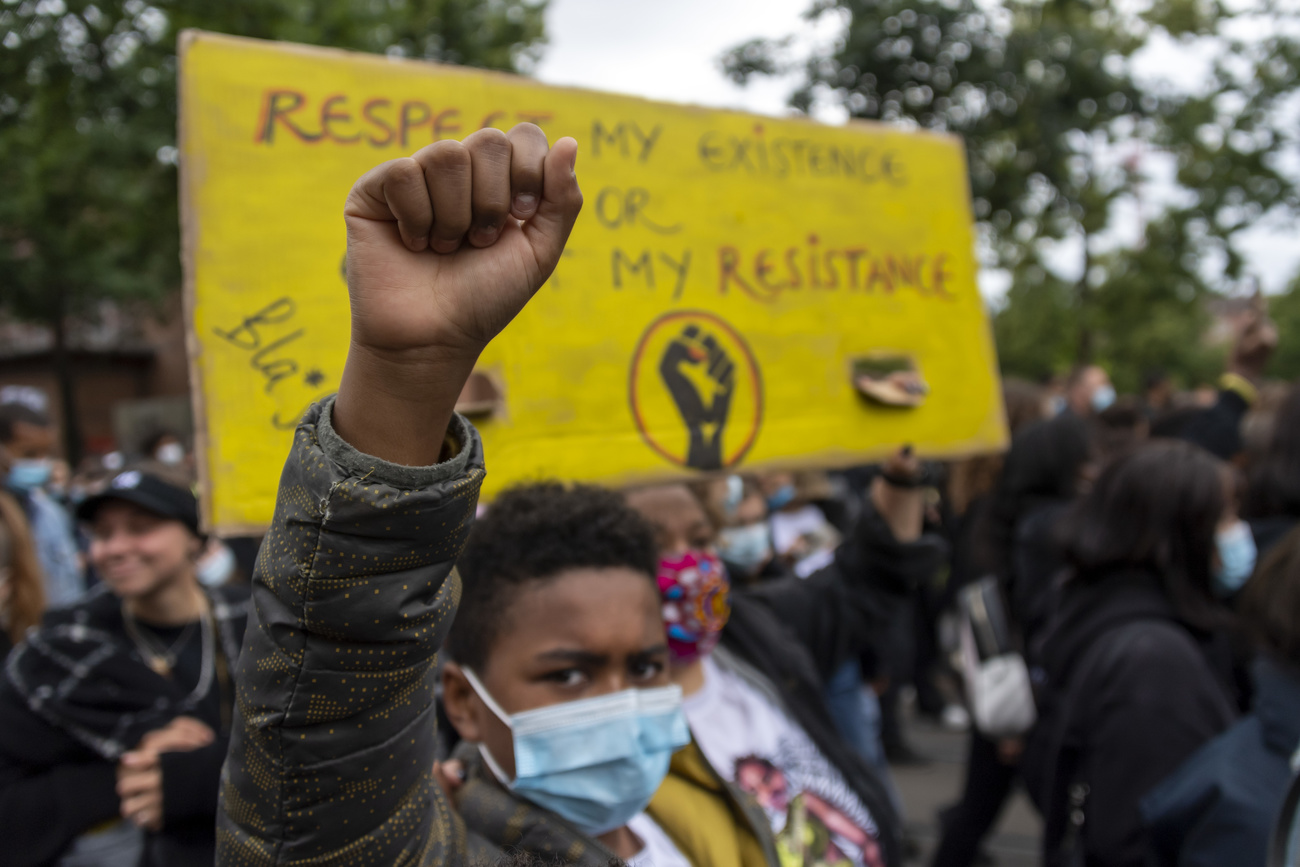
More
‘People of colour always have to look over their shoulder’
Rising hate speech
A growing number of online hate speech offences was detected against Yenish, Sinti, Roma, people of African and Asian descent, as well as against Jews and Muslims, CERD said in its report. It called on the Swiss government to investigate this phenomenon and take action. This problem has grown particularly during the pandemic.
The Federal Commission Against Racism launched a new platform for reporting racist hate speech on the Internet at the end of November, just before the CERD report came out. This was necessary because there was no such mechanism at the national level, says FCR director Wiecken.
“It is very important to have a global overview of what is happening on the Internet, and it’s very important for individuals and anti-racism organisations, to allow them to take action.” She told SWI swissinfo.ch that complaints were already coming in and that some FCR partners have “trusted flagger” status with Facebook, Twitter and YouTube, which allows offending posts to be taken down faster.
Sidiki of the CERD panel welcomed this move. Even if the FCR does not plan to take legal action based on hate speech cases reported to the platform, such a database could provide evidence for others to do so, he said.
“As we have seen in the past few years the tools are good, but we don’t know how they will be used,” says Gina Vega, head of the anti-discrimination and racism unit at humanrights.ch. “Monitoring is really important. We need to talk, we need numbers. We need to show that this [online hate speech] is really a problem here in Switzerland.”
Police violence
“We are really happy about these findings and recommendations from CERD,” says Vega. “I think it’s a really good thing that international organisations like the CERD and UN pay attention to these issues.” The Swiss NGO platform coordinated by humanrights.ch submitted a reportExternal link to CERD and met with its experts. She says the UN body picked up many of their recommendations, based on the experience of victims.
The Swiss government has implemented some of CERD’s previous recommendations, Vega told SWI swissinfo.ch, notably on the creation of a national human rights institution. This was recently approved by parliament. But initiatives to tackle racial discrimination are under-resourced and insufficient, she thinks, with action needed across institutions, including government and police.
She says police training on this issue, one of the recommendations of the CERD report, has been improved, but needs to go further. And it’s not just about racial profiling but also about police violence.
One of the most disturbing incidents to hit Swiss headlines in the past year, was the police killing of a black Swiss citizen on a train platform in the western town of Morges. The victim had a history of mental illness and had pulled out a knife, but shots from an officer’s gun caused him to bleed to death in minutes. Regional police commander Clément Leu told Swiss public radio RTSExternal link in September that “skin colour had nothing to do with the actions of my agents at that moment”, but the victim’s family said he was the victim of a racist police errorExternal link. A criminal investigation was launched and the cantonal parliament asked to examine police practices.
What now?
Switzerland was able to respond to questionsExternal link from the CERD in November, during the review. On the issue of police training, for example, the government said police training had been reviewed since Switzerland’s last CERD review and that “a great deal of emphasis had been put on professional ethics, as well as an emphasis on diversity and how to engage the population”.
Bern has now taken account of the CERD’s recommendations and is to work with the cantons and concerned organisations on implementation. The Service for Combating RacismExternal link within the Home Affairs ministry is responsible for overseeing this.
Switzerland has four years to submit a full report for its next CERD review. But the UN experts asked it to report back in one year on the UN’s most serious concerns, namely racial profiling, hate speech and the situation of non-nationals.
“We are looking forward to that report from the Swiss government to see their action plan and how they will really manage to improve on matters of racial discrimination in Switzerland,” says Vega.

In compliance with the JTI standards
More: SWI swissinfo.ch certified by the Journalism Trust Initiative
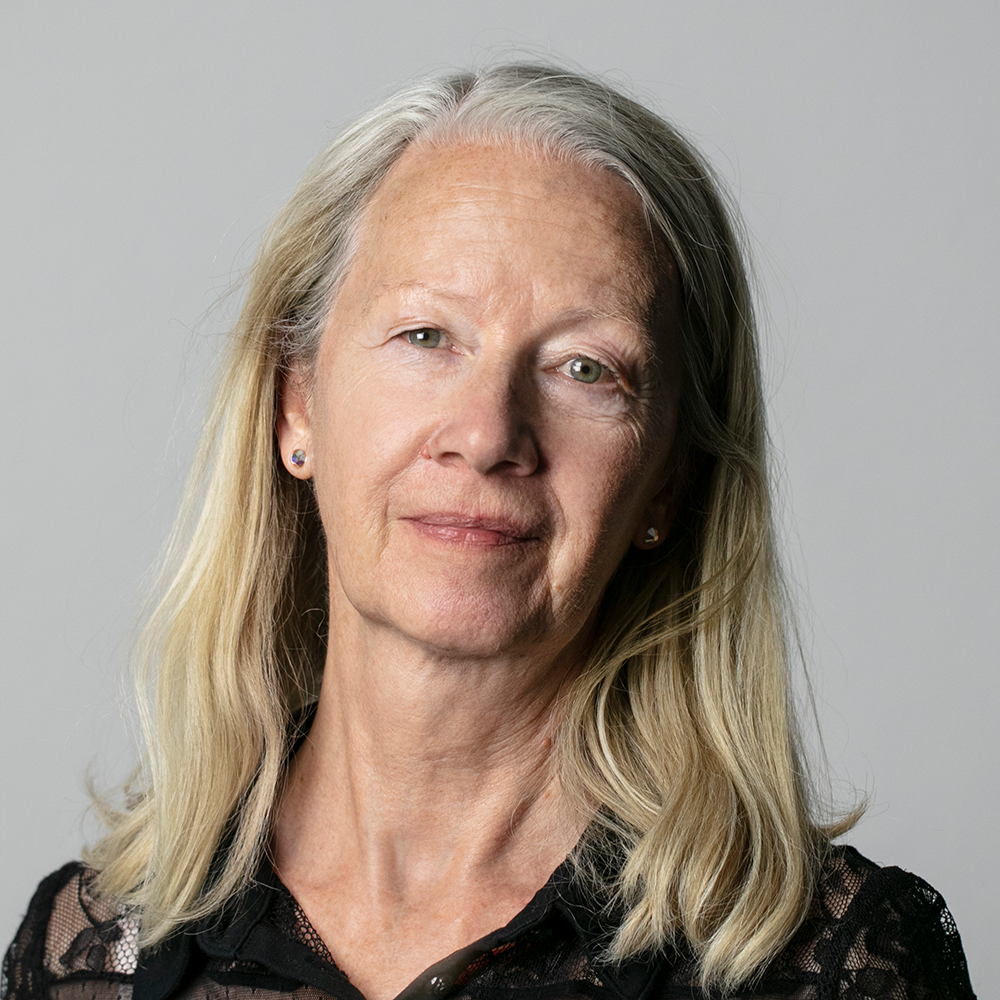

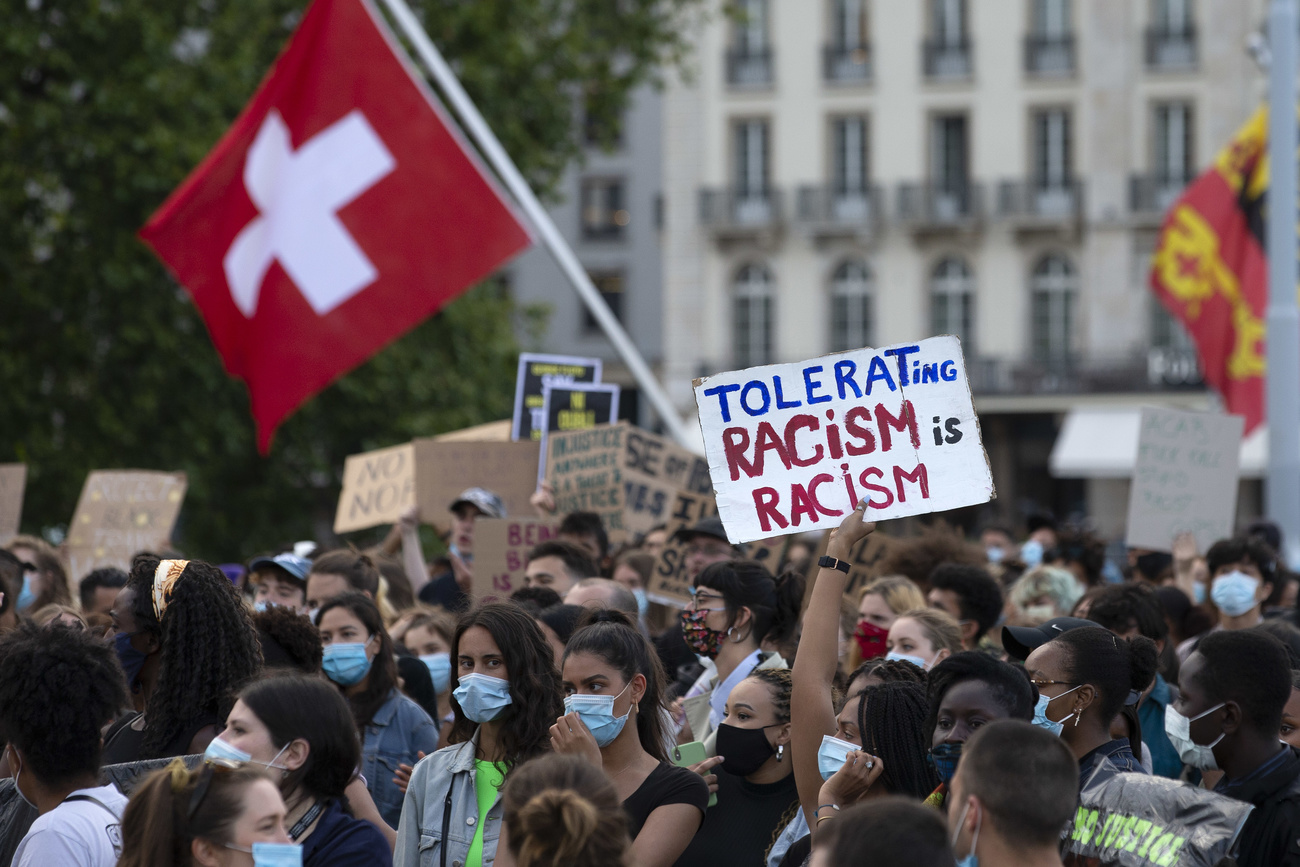

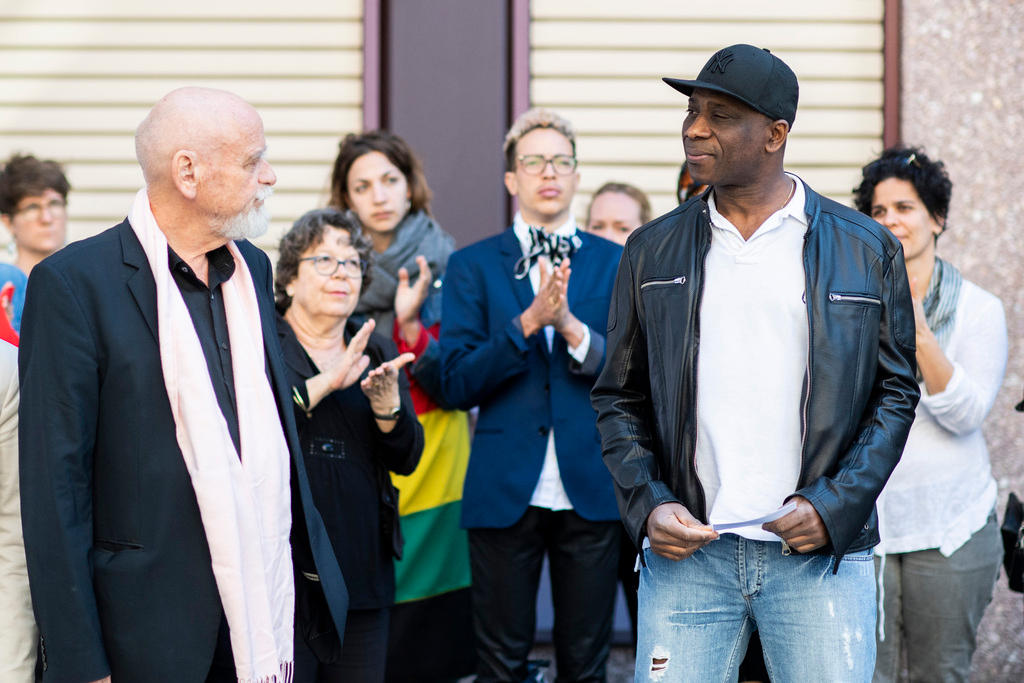
You can find an overview of ongoing debates with our journalists here. Please join us!
If you want to start a conversation about a topic raised in this article or want to report factual errors, email us at english@swissinfo.ch.